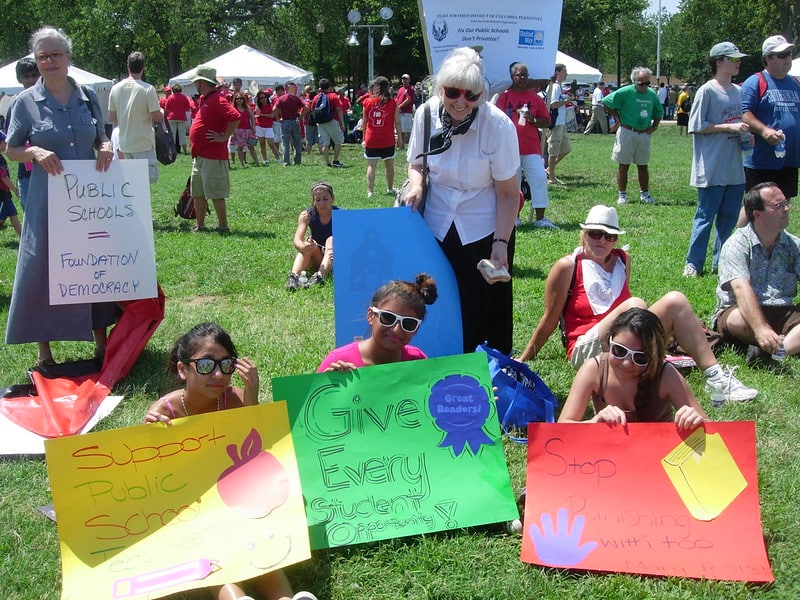Justice in Public Education
As we think about whether American society embodies Jesus’ teaching that we should love our neighbors as ourselves, we need to be concerned about public schools, the primary institution where we have agreed to nurture and shape God’s precious children. Public schools are our largest public institution, serving nearly fifty million children.
In the national conversation about public education, our role in the church is special. We are concerned about our schools as an ethical and public policy matter. How do they embody attitudes about race and poverty, power and privilege, and cultural dominance and marginalization, and how do disparities in public investment reflect these attitudes?
Synod Resolutions
The United Church of Christ has spoken prophetically to name poverty and racism as among the primary causes of injustice in our nation’s schools. General Synod 15 warned: “While children from many areas have comfortable schools with all the educational trimmings, poor and ethnic minority children often face overcrowded and deteriorated facilities, and a lack of enrichment programs or modern technology.” General Synod 18 cautioned: “Because the poor and their children are disproportionately people of color, the educational inequities in our public schools reinforce the racial/ethnic injustices of our society.” General Synod 23 proclaimed public school support – and advocacy for the same – as one of the “foremost civil rights issues in the twenty-first century.” General Synod 25 called all settings of the UCC to do justice and promote the common good by strengthening support for public institutions and providing “opportunity for every child in well-funded, high quality public schools.”
You shall love the Lord your God with all your heart, and with all your soul, and with all your mind.” This is the greatest and first commandment. And a second is like it: “You shall love your neighbor as yourself.”
Matthew 22: 35-39

From our Partners:
- The National Council of Churches Committee on Public Education and Literacy produced a series of excellent resources for use by members of the Council’s many congregations and justice advocates.
- The National Opportunity to Learn Campaign is a group of civil rights partners advocating for justice when Congress reauthorizes the federal education law.